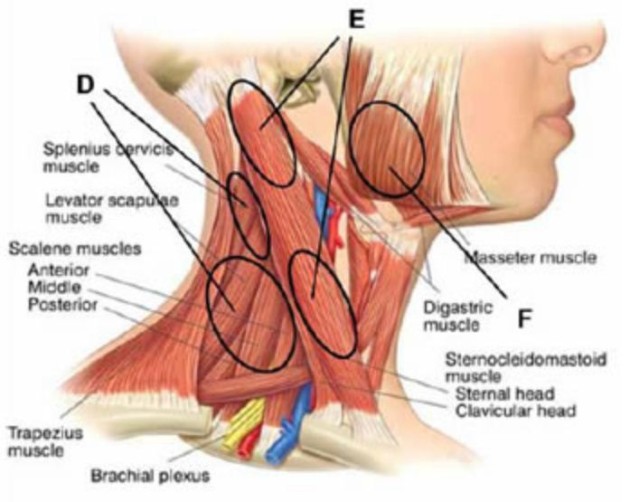
Acute Torticollis
It can be attributed to sleeping in an awkward position, sleeping in a draft or spending time outdoors in the wind. It can last from 24-48 hours to up to 2-3 weeks.
The pain is caused by the muscles in the neck going into spasm. Often the pain affects only one side of the neck but can radiate into the head or the shoulder. The neck may feel stuck in one position or cause spine contortion whereupon the neck is twisted to the right or the left.
Resting for a day or two can initially be helpful if the pain is severe. Your G.P. will be able to diagnose your condition based on your symptoms but if they have any doubts as to the cause of your neck pain, further investigations i.e. an x-ray may be ordered to rule out any disc involvement. A cervical collar should not be used unless the symptoms are particularly severe, and not for more than a few days as it is best to try to keep the neck mobile.
Analgesia, anti-inflammatory medication or muscle relaxants may help with symptom relief under the guidance of a doctor. Following a days’ rest, beginning gentle exercises will help prevent the neck from stiffening up further. A physiotherapist can provide gentle message and mobilisation of the neck to relieve symptoms.
Heat or cold packs may also help to resolve any inflammation and relieve pain. Use a few times a day, never apply these directly to the skin, always wrap in a towel to prevent further injury.
A physiotherapist can also give advice to improve your posture to promote good spinal alignment to prevent further episodes of torticollis reoccurring. The use of a good supportive pillow can also help you sleep in the correct position. It may be advisable to avoid driving if possible at the start of your injury because the restrictions on the turning of the head would make it impossible to view your blind spot.
For more physiotherapy news click here.